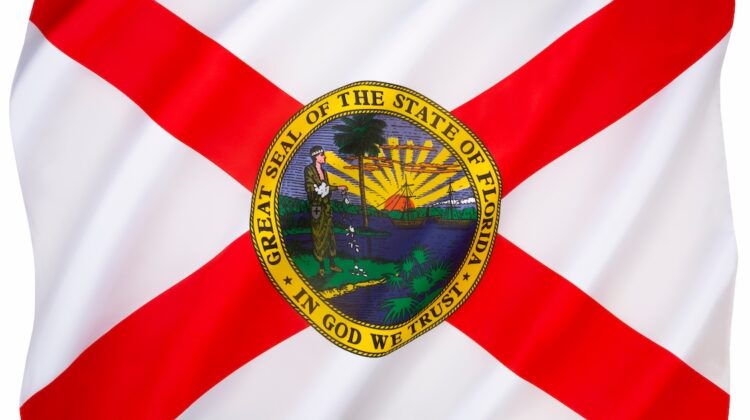
Photo credit: SteveAllenPhoto999
Despite 24 states across the country having legal recreational cannabis, Florida has remained among the states persistently resisting it. Election Day unambiguously confirmed this resistance.
As a result, cannabis remains illegal. This leaves Floridians unable to purchase it except illicitly on the streets, with a medical prescription, or through alternative legal cannabinoids from smoke shops.
In the state of Florida, possession of any amount of cannabis over 20 grams is a felony offense. If the recent amendment had passed, Floridians would be legally permitted to purchase that same amount from a designated retailer and drive home, safely and without police intervention.
Amendment 3, Florida’s state constitutional measure attempting to legalize recreational cannabis for those 21 and over, required a supermajority—60%—of votes to pass. On Nov. 5, it received 56% of the total state votes.
If it had passed, it would have rendered cannabis available for sale from licensed dispensaries.
For the last eight years, Florida’s medical cannabis industry has prospered. Earlier this year, according to Floridastatecannabis.org, the number of medical card holders reached close to a million at 871,459. In 2018, that number was only 69,579—that is over a 1,000% increase. Despite broad support for medical cannabis, the recreational amendment failed.
The amendment, if passed, would have permitted personal possession of up to 3 ounces of cannabis flower and up to 5 grams of cannabis concentrate. It is unclear if Florida would have allowed individuals to cultivate cannabis—a crucial omission to the amendment language that opponents pounced on.
The (Lost) Prospect of Legal Cannabis in Florida
Since voters approved medical cannabis in 2016, Florida unsuccessfully attempted to legalize adult-use cannabis in 2021 and 2023. This time, however, polling indicated early on that passage of the state amendment was likely. In late October, Forbes reported that polling predicted the amendment would pass by a wide margin, with 66% of Floridians willing to vote yes on cannabis.
Proponents argued that the passage of Amendment 3 would be a pivotal moment for Florida. According to Smart and Safe Florida, the sponsor of Amendment 3, “Legalization can lead to job creation, economic opportunities, and reinvestment in communities harmed by past drug policies.”
Experts forecast legalization to result in a $431 million boost to the Florida annual economy.
Even after many cities in Florida—such as Orlando, Tampa, and Miami Beach—have decriminalized possession of small amounts of cannabis, a consequential number of Floridians are arrested each year. According to Creative Loafing Tampa Bay, “Florida brought 16,000 charges against people for possession of small amounts of cannabis in 2023.”
Legalization would have radically reduced the number of arrests for small amounts of cannabis to nearly none.
Those in favor of recreational cannabis frequently invoked the racial implications of Florida’s cannabis laws and the ways that certain racial demographics, such as Hispanics and Black people, are unfairly targeted.
To these advocates, such as attorney Josh Monteiro, cannabis remaining illegal leads, directly or indirectly, to implicit discriminatory policing practices. As he told Creative Loafing, “a lot of people who look like me are being locked up for marijuana charges.”
Recreational Cannabis Discourse in Florida: Why Did A3 Fail?
While many in Florida were anticipating the codification of Amendment 3, there was a concerted, and well-funded, effort to undermine the legalization of recreational cannabis.
Gov. Ron Desantis, aligning with the majority of Republicans, opposed legalizing cannabis. However, some of his criticisms were more trivial than politically substantive. He stated earlier in 2024, “This state will start to smell like marijuana, in our cities and towns. It will reduce the quality of life.”
Advertisements in Florida accused Amendment 3 of only benefiting “big weed.” Some cited the financial support from certain medical cannabis dispensaries, such as Trulieve, and the lack of language in the amendment permitting personal cultivation.
These ads, some funded by DeSantis using $50 million in taxpayer money, sought to convince voters that Amendment 3 was a “monopoly bill” and would not allow smaller businesses to thrive in the newly formed market. While large corporate medical dispensaries that already have a framework for operating in Florida, like Trulieve and MÜV, would have an easier time gaining licensure, many believe there would be room for other businesses. NBC Miami explains that, “the Florida Legislature would be able to issue additional licenses to expand the list of marijuana sellers and distributors.”
Legalization in Florida: Looking Towards 2026
The next opportunity for recreational cannabis to be a direct initiative item on Florida ballots is 2026. However, many of the financial supporters have likely exhausted much of their funding in this election cycle, after spending over $100 million dollars.
In the meantime, Smart and Safe Florida noted they “are eager to work with the governor and legislative leaders who agree with us on decriminalizing recreational marijuana for adults, addressing public consumption, continuing our focus on child safety, and expanding access to safe marijuana through home grow.”
Some cities, such as Palm Beach, have already pre-emptively announced that they will not allow recreational cannabis within their limits, even if it does one day pass. The city prevented this by adding a clause to its ordinance against already-established medical dispensaries that included recreational dispensaries as well.
The future of cannabis in Florida remains uncertain. But, as of now, Floridians have submitted their ballots for a continuation of the self-defeating trajectory of the drug war. Hopefully there are less than 16,000 arrests for cannabis possession this year.



Leave a Reply